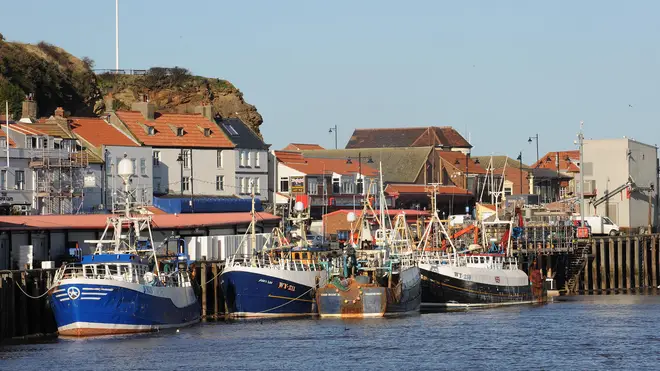
Iain Dale 7pm - 10pm
1 December 2020, 15:24

Cabinet Office Minister Michael Gove tells EU ‘it takes two to tango’ as negotiations continue with transition period exit looming.
Cabinet Office Minister Michael Gove has hit out at the EU for trying to take the “lion’s share” of British fish stocks as Brexit talks go “down to the wire”.
The senior minister also called for Brussels to move on other areas of contention such as dispute resolution, as he insisted “it takes two to tango”.
The remarks came as negotiations between London and Brussels continue, with both sides stressing that time is running short to strike an agreement, with the Brexit transition period finishing at the end of December.
Mr Gove urged businesses to be ready for the deadline whether a last-minute deal is struck or not.
“The EU still want to take the lion’s share of the fishing in our waters, which is just not fair given that we are leaving the EU.
“The EU still want us to be tied to their way of doing things.
“What happens if there is a dispute? The EU are at the moment reserving the right, if there is any sort of dispute, to not quite rip everything up but really to impose some quite penal and tough restrictions on us, and we don’t think that’s fair,” he told Sky News.
“It takes two to tango; we have intensified the negotiation process but it’s important that the EU also lives up to its responsibilities as well,” he told ITV’s Good Morning Britain.

Acknowledging that talks were “getting close to the wire” ahead of the Brexit transition period finishing at the end of the month, Mr Gove urged businesses to be prepared whichever way the negotiations go.
“Whether or not we have a free trade agreement – and I fervently hope that we do – more than 80% of what business needs to do is the same anyway,” he told the BBC.
The comments come as a round-the-clock unit will watch out for problems at the UK’s border as new trading arrangements with the European Union take effect.
The Border Operations Centre will use experts and cutting-edge software to help cope with the disruption expected once the UK leaves the single market and customs union on January 1.
The UK hopes to have the “world’s most effective border” by 2025, but concerns have been raised about the current system’s ability to cope with Brexit.
New business rules start 1 Jan 2021. Getting ready takes longer than you think.
Act now at ➡️ https://t.co/VMmmiXdW3e pic.twitter.com/FRwMIwRqcJ
— Home Office (@ukhomeoffice) November 30, 2020
Mr Gove said: “At the end of the year we will take back control of our borders and that’s why we have set up the new Border Operations Centre to monitor and analyse flows of goods and people into the UK in real time.
“This will help us tackle challenges quickly and decisively, and give us increased information which will make us safer and more secure.”
At the heart of the new operation will be the Border Flow Service software that gathers information about the flow of goods and passengers.
Officials acknowledged that changes to the way the UK trades with the EU are likely to mean “short-term” disruption at the border.
They hope that better access to information and intelligence will help minimise this disruption.
As changes are phased in, from July, UK imports from the EU will require safety and security declarations for the first time, something officials hope will help tackle organised crime.
Meanwhile, the Government has also sent letters to businesses to ensure they know what they need to do to prepare for the end of the transition period.
Business Secretary Alok Sharma said: “Amongst all our proactive work with business, I have written to nearly five million firms across the UK outlining the top actions they need to take and reminding them that the Government is here to support them as the transition period ends.”
But Mr Sharma was accused of dodging scrutiny by the Commons Business, Energy and Industrial Strategy Committee after refusing to attend a hearing on December 8.
The committee’s Labour chairman Darren Jones said: “It sends a dismal signal to British business that their Secretary of State isn’t even willing to discuss what his department are doing to support businesses as they face unprecedented challenges in dealing with the impact of Covid-19 and in preparing for the end of the transition period.”